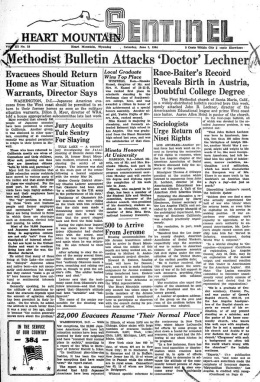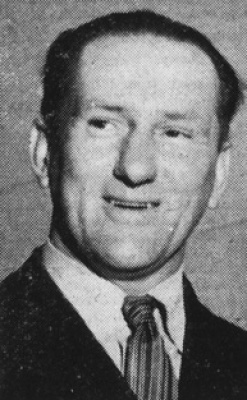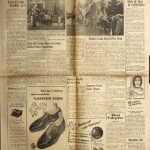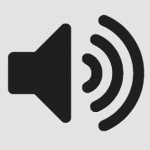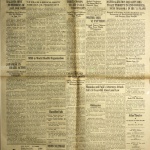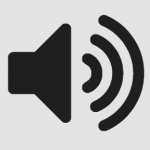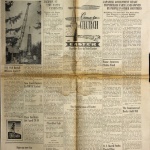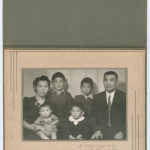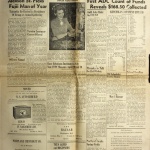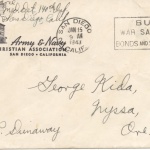John R. Lechner
| Name | John R. Lechner |
|---|---|
| Born | January 26 1900 |
| Died | February 12 1967 |
| Birth Location | Innsbruck, Austria |
"Americanization" and anti-Communist activist. "Dr." John Lechner (1900–67), first allied himself with Nisei patriotic efforts just prior to World War II, then became one of the most strident voices for the mass eviction of Japanese Americans from the West Coast and against their return.
John R. Lechner was born in Innsbruck, Austria, in 1900, coming to California from Pennsylvania in 1924. In 1927, he founded the Americanism Educational League for which he served as executive director and which championed a variety of right-wing causes over the next forty years. In 1941, he received a doctorate from a diploma mill and began referring to himself as "Dr."
In 1941, he formed a brief partnership with Nisei in Los Angeles determined to demonstrate their loyalty as war clouds with Japan loomed. From the perspective of Nisei leaders such as Tokie Slocum , Lechner's group represented an opportunity to align themselves with a White American ally that could noisily champion their Americanism. From the other side, historian John Modell writes, "the Nisei were Lechner's ideal group: unmoved by radicalism, economically self-reliant, politically uncommitted, and clamoring for a more complete expression of citizenship. Lechner hoped to become an apostle to the Nisei...." [1] He partnered with Nisei leaders to put together a mass rally held at Hollywood Legion Stadium on May 10, 1941, that was endorsed by groups as diverse as the American Legion, the "I Am an American Foundation," and the Japanese Chamber of Commerce. Lechner spoke on "Our America in Crisis," while speeches by Gongoro Nakamura represented the Issei and Togo Tanaka the Nisei. Lechner also sat on the podium of the 1941 Nisei Week Festival opening and closing ceremonies. Even after the attack on Pearl Harbor, he promoted fair play for Japanese Americans, explicitly opposing mass removal and arguing that the "government can meet the danger without resorting to evacuation." [2]
But less than three weeks later, he became a vocal proponent of mass removal of Japanese Americans, including his former Nisei allies. Starting on February 10 and extending into March, Lechner gave numerous speeches to groups throughout Southern California, some in partnership with anti-Japanese agitator Kilsoo Hahn . Later he was vocal in his opposition to allowing Japanese Americans to return to the West Coast, going to Washington to meet with nineteen Congressmen in November 1943. He authored a pamphlet titled "The Inside Story of Our Domestic Japanese Problem" in 1943 and also a star expert witness on Japanese Americans before the Joint Fact-Finding Committee on Un-American Activities (known also as the Tenney Committee) in 1943. He continued to speak widely on the "Nisei menace" throughout the state for the duration of the war.
After the war, he continued to be a strident anti-Communist voice with a particular interest in Cuba after the revolution. He briefly graced the Japanese American press again in the early 1960s, when the California legislature considered a resolution honoring him for his "Americanism." Among those opposing his testimony was Frank Chuman, the president of the Japanese American Citizens League at the time, who described him as "one of the most bigoted, racist, rabble-rousing individuals in the state of California against loyal citizens and residents of Japanese ancestry." [3]
He died on February 12, 1967, in Los Angeles.
Pamphlets authored by John R. Lechner:
Reds! (1931)
Naziism on the Pacific Coast (1937)
The Inside Story of Our Domestic Japanese Problem (1943)
A Brief Analysis of the Communist Movement in America (1947)
Operation Abolition (1960)
A Report on the Cuban "Invasion" Fiasco (1961)
Unmasking the W.E.B. Dubois Clubs (1966)
For More Information
Americanism Educational League folder list. Nixon Presidential Library & Museum. http://nixon.archives.gov/virtuallibrary/documents/whsfreturned/WHSF_Box_53/WHSF53-11.pdf .
Barrett, Edward L., Jr. The Tenney Committee: Legislative Investigation of Subversive Activities in California . Ithaca, NY: Cornell University Press, 1951.
"Dr. Lechner Dies, Once Sued the PC." Pacific Citizen , February 17, 1967, 1.
Edell, Edward. An American with Guts. Los Angeles: Cole-Holmquist Press, 1961. [Hagiographic biography of Lechner.]
Eisenberg, Ellen M. The First to Cry Down Injustice?: Western Jews and Japanese Removal during WWII . Lanham, MD: Lexington Books, 2008.
Grodzins, Morton. Americans Betrayed: Politics and the Japanese Evacuation . Chicago: University of Chicago Press, 1949.
Leonard, Kevin Allen. "'Is That What We Fought For'? Japanese Americans and Racism in California, the Impact of World War II." Western Historical Quarterly 21.4 (Nov. 1990): 463-82.
McWilliams, Carey. Prejudice: Japanese-Americans; Symbol of Racial Intolerance . Boston: Little, Brown, & Co., 1944.
Modell, John. "The Japanese of Los Angeles: A Study in Growth and Accommodation, 1900-1946." Ph.D dissertation, Columbia University, 1969.
———. The Economics and Politics of Racial Accommodation: The Japanese of Los Angeles 1900-1942 . Chicago: University of Illinois Press, 1977.
Footnotes
- ↑ John Modell, "The Japanese of Los Angeles: A Study in Growth and Accommodation, 1900-1946." (Ph.D. dissertation, Columbia University, 1969), 366.
- ↑ Los Angeles Daily News , Jan. 21, 1941, cited in Morton Grodzins, Americans Betrayed: Politics and the Japanese Evacuation (Chicago: University of Chicago Press, 1949), 52.
- ↑ Cited in Bill Hosokawa, JACL in Quest of Justice: The History of the Japanese American Citizens League (New York: William Morrow, 1982), 304–05. [Hosokawa adds that Larry Tajiri repeated Chuman's comments in his column for the Pacific Citizen , which resulted in Lechner suing the PC for libel. The suit was later abandoned.]
Last updated Oct. 8, 2020, 4:55 p.m..

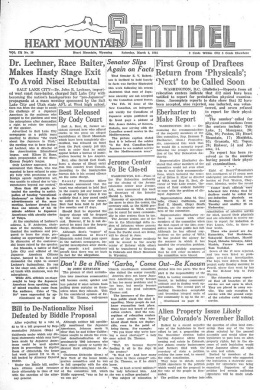 Media
Media
